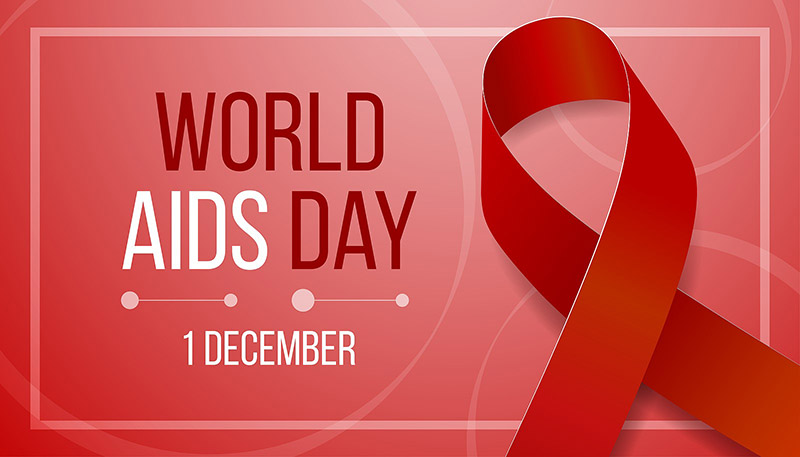
World AIDS day always reminds me of my past, because I have seen far too many family members succumb to the hideous disease. Since 1995, I’ve lost two uncles and an adopted aunt to it.
In 1995, we lost my first uncle who got it from using shared needles as a heroin addict. His death was hard to swallow because he never had a chance to take the medications that have practically cured it today. In fact, in the last few weeks of his life, it was brutal to have to witness him wither away to under 100 pounds, to witness him experience dementia and for him not to even know how to get to the bathroom.
Listening to his labored breathing is something I can still hear vividly in my mind. It was as if someone with a heavy workbook placed their foot on his chest as he tried to simply exist.
My second uncle died just a little under 10 years later, in 2005. He, like my other uncle (his younger brother) turned to drugs after the loss of their eldest brother and he, too, shared needles to inject heroin — and it wound up killing him. His suffering was nothing in comparison to my first uncle, perhaps because he had taken some of the medications that slow the disease down, but he, too, succumbed, just like his brother. One was 41 the other was 52, just a few weeks shy of his 53rd.
Then, a few years later, I lost my third relative, an aunt, who never touched a drug in her life, but who instead got the disease from her husband, who himself died from the disease.
I remember as late as the 90s being petrified of the disease. I would scrub the toilet for fear if the virus was somewhere in the bowl, I’d catch it. We know, now, of course, that is a virtual impossibility. But this is what happened when the disease was unknown. There was this incredible fear of it. And I know it was in my home for a long time and knew no better.
But now, in 2022, there are so many cases where because of various therapies available, there are people who were diagnosed HIV+ whose tests can no longer even detect it. So much has improved over the years, but it is of little consolation to those who have lost loved ones. And by no means are we anywhere near eradication, either.
In fact, nearly 39 million people still live with HIV and of those, 25.6 million live on the African continent. So indeed, there is still a long way to go. Far too many humans live with HIV/AIDS. And there are entirely too many families whose numbers have dwindled because of the disease.
So until the day comes when AIDS is a thing of the past, pause Dec. 1. Remember all who have died and pray one day the disease will be nothing but a distant memory.
Learn more about the writer ...
Kevin A. Canessa Jr. is the editor of and broadcaster at The Observer, an organization he has served since 2006. He is responsible for the editorial content of the newspaper and website, the production of the e-Newspaper, writing several stories per week (including the weekly editorial), conducting live broadcasts on social media channels such as YouTube, Facebook, and X, including a weekly recap of the news — and much more behind the scenes. Between 2006 and 2008, he introduced the newspaper to its first-ever blog — which included podcasts, audio and video. Originally from Jersey City, Kevin lived in Kearny until 2004, lived in Port St. Lucie. Florida, for four years until February 2016 and in March of that year, he moved back to Kearny to return to The Observer full time. Click Here to send Kevin an email.
